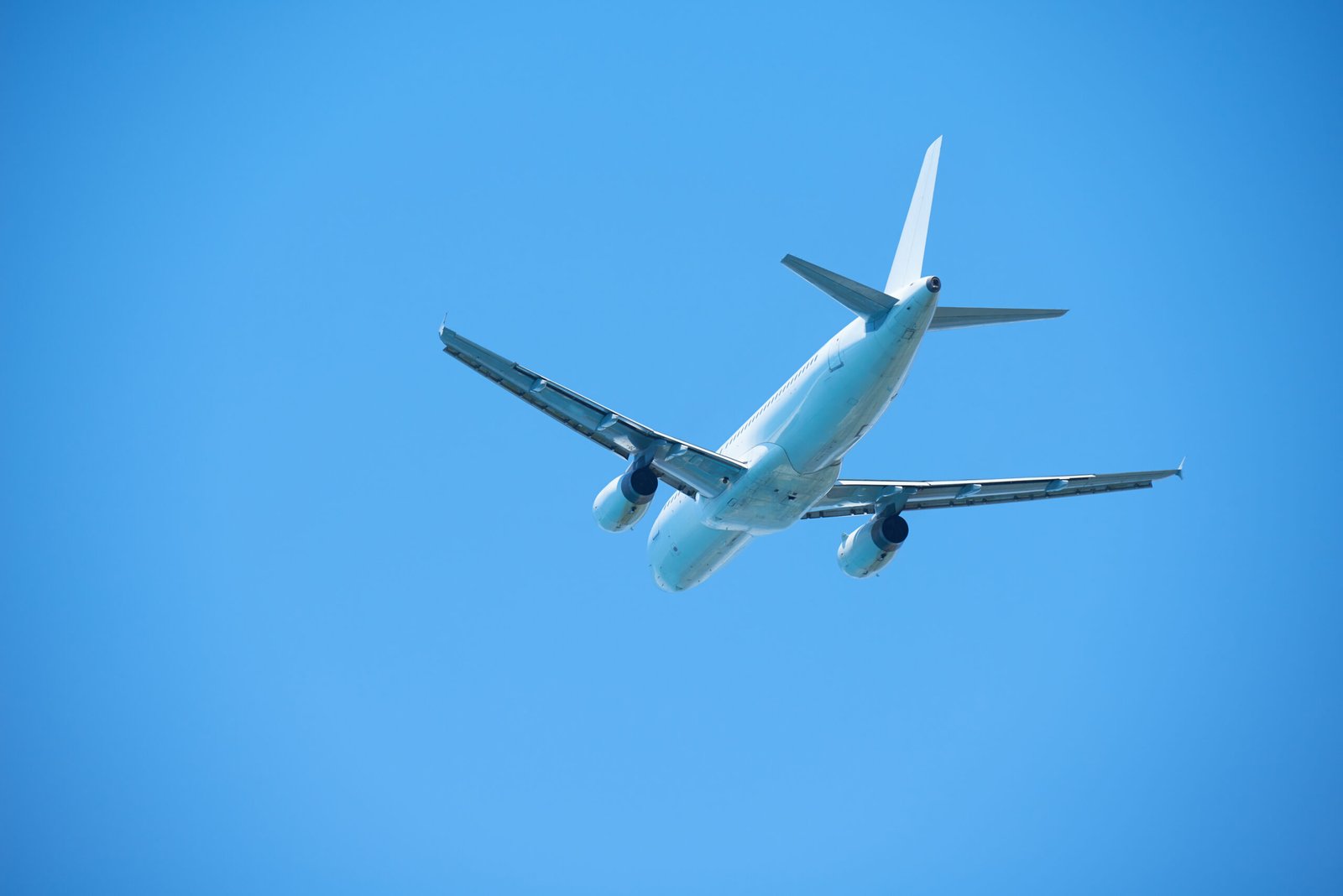aviation technology
From Biplanes to Drones: The Evolution of Flight Through the Ages
Aviation has always been a field that captivates the imagination, marking significant milestones in human innovation. From the rudimentary biplanes of the early 20th century to today’s sophisticated drones, the evolution of flight is a remarkable journey filled with technological advancements and educational opportunities. As we continue to explore this fascinating domain, aviation schools have become essential in shaping aspiring aviators and enthusiasts.
When it comes to aviation education, various types of courses cater to different interests and career goals. For those looking to become pilots, traditional flight training programs offer comprehensive curricula that cover everything from basic flying skills to advanced navigation techniques. Many schools also provide specialized courses for commercial pilots, instrument-rated pilots, and even airline transport pilot (ATP) certification.

In addition to pilot training, there are programs focused on aircraft maintenance and repair—these often include hands-on experiences in workshops or hangars where students can work on real aircraft. Similarly, air traffic control programs equip students with vital skills needed for managing air traffic safely and efficiently. With the rise of unmanned aerial vehicles (UAVs), many aviation schools now offer drone piloting courses as well as UAV operations management classes.
To stay connected and informed about aviation trends, numerous blogs and websites serve as valuable resources for both professionals and hobbyists alike. Notable blogs like “The Aviation Herald” provide insights into aviation safety issues through detailed accident reports while “AirlineReporter.com” offers captivating stories about airline travel experiences combined with industry news. Websites such as “Flying Magazine” host extensive articles covering various topics from aircraft reviews to pilot tips.
Social media platforms further enhance community engagement within the world of aviation. On Instagram, accounts like @aviationdaily showcase breathtaking aerial photography alongside informative infographics about aircraft specifications or flying tips. Meanwhile, Twitter boasts active discussions among aviators under hashtags such as #AvGeek or #PilotLife which allow users to share their experiences instantaneously.
For those seeking formal training in America, FAA-approved flight schools are a crucial part of the equation. The Federal Aviation Administration provides a list of accredited institutions that meet stringent standards for quality instruction in both ground school and flight training environments. These schools often feature state-of-the-art simulators that replicate real-life flying conditions without leaving the ground—a perfect tool for honing one’s skills before taking off into the skies.

Flight simulators have revolutionized how pilots train today; they enable immersive practice scenarios ranging from routine flights to emergency situations without risking lives or equipment. Many reputable FAA-certified facilities utilize advanced technology that accurately mimics cockpit layouts along with realistic weather patterns—creating an unparalleled learning environment for prospective aviators.
As we witness continued advancements in aviation technology—from electric planes being designed by visionary companies to autonomous drones performing complex tasks—the educational landscape must adapt accordingly. Whether you’re passionate about becoming a pilot or simply curious about UAV technology, diverse courses are available at various institutions across the country.
In conclusion, exploring the evolution of flight reveals not only technological progress but also highlights how education plays an integral role in shaping future generations within this dynamic field. With countless resources available through blogs, social media sites, FAA-approved flight schools, and specialized training programs dedicated solely to enhancing knowledge around aviation—there has never been a better time to embark on your own aerial journey!
Soaring High: The Evolution of Aviation Technology Through the Decades
Aviation has come a long way since the Wright brothers took to the skies in 1903. Today, we find ourselves in an era where technology not only enhances flight safety and efficiency but also revolutionizes how we learn about aviation. As we explore the evolution of aviation technology through the decades, it’s essential to look at some of the educational pathways available, valuable online resources, and FAA-certified training options that have shaped aspiring aviators.

### Aviation Schools by Types of Courses
The landscape of aviation education is diverse, catering to various interests and career paths within the industry. From traditional brick-and-mortar institutions to innovative online programs, aspiring pilots and aviation enthusiasts have a plethora of choices:
1. **Pilot Training Programs**: These courses are designed for those eager to take to the skies as private or commercial pilots. They include ground school instruction combined with hands-on flight training.
2. **Aviation Management**: For individuals interested in the business side of aviation, programs focus on airport operations, airline management, and air traffic control systems.
3. **Aircraft Maintenance**: Technical schools offer specialized training for those who wish to work on aircraft systems and structures, emphasizing safety protocols and regulatory compliance.
4. **Avionics Technology**: With advancements in electronic instrumentation in aircraft, avionics programs teach students about navigation systems, communication tools, and troubleshooting techniques.
5. **Unmanned Aerial Systems (UAS)**: As drones gain popularity across various sectors—from agriculture to defense—courses focusing on UAS technology equip students with skills for this burgeoning field.
### Lists of Aviation Blogs, Websites & Social Media Sites
In today’s digital age, staying updated with industry trends is easier than ever thanks to numerous blogs and websites dedicated to aviation. Here’s a curated list worth checking out:
**Airline Reporter**: This blog offers news from behind-the-scenes at airlines along with reviews.
**Flying Magazine**: An excellent resource filled with articles covering tips for pilots and features on new technology.
**The Points Guy (TPG)**: Though primarily focused on travel points and rewards; TPG often includes valuable insights into airline performance.
**AOPA (Aircraft Owners and Pilots Association)**: Provides resources for both novice pilots and seasoned professionals.
On social media platforms like Twitter or Instagram, following accounts such as @JetBlue or @Boeing can provide real-time updates directly from industry leaders.
### FAA Flight Schools/Airplane Schools/Simulators
When it comes to obtaining practical flight experience, FAA-certified schools are paramount. These institutions adhere strictly to regulations ensuring high standards of training:
1. **Part 61 Schools**: Flexible programs allow students to progress at their own pace while working towards their pilot license.
2. **Part 141 Schools**: Structured curricula provide a more regimented approach that may suit those looking for fast-tracked learning experiences.
3. **Flight Simulators**: Advanced simulators mimic real flying conditions without leaving solid ground—these invaluable tools help trainees practice maneuvers safely before entering actual cockpits.
From foundational pilot training courses at local schools to advanced technical studies online or through immersive simulations—aviation education continues evolving alongside technological advancements in aircraft design and operation.
As you reflect on your journey into this fascinating realm where innovation meets tradition—remember that every great flight begins with well-crafted knowledge! Whether you’re planning your first solo flight or just curious about aviation’s rich history—soar high into your dreams!
The Future of Flight: Innovations Transforming the Aviation Industry
As we soar into a new era of aviation, the landscape is evolving rapidly, driven by groundbreaking innovations and advancements. The future of flight is not only about sleek aircraft and high speeds; it’s also about training the next generation of aviators, sharing knowledge through various platforms, and harnessing technology to enhance safety and efficiency. Let’s delve into the different facets transforming this dynamic industry.
### Aviation Schools: A Spectrum of Courses
To navigate the skies effectively, aspiring pilots need comprehensive education tailored to their goals. Aviation schools offer a multitude of courses that cater to diverse interests and career paths.
1. **Private Pilot Training**: This foundational course introduces students to essential flying skills. It prepares them for private pilot certification, allowing them to fly solo or with passengers under specific regulations.
2. **Commercial Pilot Programs**: Once students obtain their private license, many opt for commercial training to gain professional piloting credentials. These programs provide advanced instruction on navigation, flight maneuvers, and operational procedures.
3. **Air Traffic Control (ATC) Training**: Not all aviation careers involve flying! ATC courses prepare individuals to manage air traffic safely and efficiently using cutting-edge technology.
4. **Aviation Management**: For those interested in the business side of aviation, management programs focus on airport operations, airline management, logistics, and regulatory compliance.
5. **Maintenance Engineering**: Recognizing the importance of aircraft upkeep, these technical courses equip students with skills needed for aircraft repair and maintenance—ensuring safety in every flight.
### A Wealth of Information: Aviation Blogs and Websites
In today’s digital age, staying informed is easier than ever thanks to a plethora of blogs, websites, and social media channels dedicated to aviation enthusiasts:
**Airline Reporter**: This blog covers industry news with a unique perspective on travel experiences.
**Flight Global**: An authoritative source for aviation news that keeps readers updated on global trends.
**The Points Guy (TPG)**: Focused on travel rewards strategies but rich in insights relevant to frequent flyers.
**AvGeekery**: A community-driven site where avid aviation fans share stories about their love for planes.
**YouTube Channels like Mentour Pilot**: Offering engaging video content that breaks down complex aviation concepts in an accessible way.
Social media platforms such as Instagram have taken flight too! Accounts like @aviationdaily showcase stunning aerial photography while Twitter handles like @FlightAware provide real-time tracking updates—keeping fans connected in real time.
### FAA Flight Schools & Simulators
For practical training grounded in safety standards, FAA-approved flight schools are vital stepping stones for aspiring pilots. These institutions adhere strictly to regulations set forth by the Federal Aviation Administration (FAA), ensuring quality education throughout various stages of pilot development.
Additionally, simulators have revolutionized pilot training over recent years. Advanced simulation technology allows students to experience realistic flying scenarios without ever leaving the ground! These systems replicate actual cockpit environments enabling learners to practice emergency procedures or hone specific maneuvers safely before taking off in real aircraft.
Simulators not only reduce costs associated with traditional flight hours but also permit learners endless opportunities for practice—an invaluable resource as they prepare for licensing exams or further certifications.
### Conclusion
The future of aviation gleams bright with innovation at its helm—from diverse educational pathways nurturing talent across various sectors within the industry to technological advancements redefining how we train pilots and share information. As we embrace these changes together as enthusiasts or professionals alike—one thing remains certain; our passion for flight will continue soaring toward new horizons!

Wings of Change: How Aviation is Evolving in a Post-Pandemic World
The aviation industry, once grounded by the pandemic, is now soaring into an era of transformation. As we emerge from the shadows of COVID-19, aviation schools are adapting to new demands and trends. From traditional pilot training to innovative courses in drone technology, the landscape has never been more diverse or exciting.
*Aviation Schools: A Spectrum of Courses**
One notable shift is the diversification of educational offerings. Prospective aviators can choose from a variety of programs tailored to meet different career aspirations. Here’s a breakdown of some types:
1. **Pilot Training Programs**: These remain foundational for anyone pursuing a career as a commercial or private pilot. Students learn everything from basic flight maneuvers to advanced navigation skills.
2. **Air Traffic Control Courses**: With air traffic increasing again, these programs focus on teaching students how to manage and direct aircraft safely and efficiently.
3. **Aerospace Engineering Degrees**: For those inclined toward design and innovation, these degrees cover everything from propulsion systems to materials science, preparing students for roles in aircraft manufacturing.
4. **Drone Technology Programs**: As drones find applications in various sectors—from delivery to agriculture—many schools now offer specialized training for aspiring drone operators and technicians.
5. **Airport Management Studies**: These courses cover operations management at airports, focusing on logistics, security protocols, and customer service strategies essential for modern airports.
With such a range available, students have unprecedented opportunities to tailor their education to their interests and the evolving job market.
*Discovering Online Resources**
In today’s digital age, staying informed about aviation trends is crucial—and there’s no shortage of resources out there! Here are some popular blogs and websites that offer valuable insights:
**AirlineReporter.com**: This blog covers airline news and reviews with an engaging personal touch.
**FlyingMag.com**: Known for its comprehensive articles on flying techniques as well as gear reviews.
**Plane & Pilot Magazine (planeandpilotmag.com)**: Offers expert advice on all things related to piloting.
**The Points Guy (thepointsguy.com)**: Focuses on travel tips related to frequent flyer programs and maximizing travel rewards.
Social media platforms also play an essential role in keeping enthusiasts connected:
Follow accounts like @aviationdaily on Twitter for real-time updates.
Instagram handles such as @airplanesdaily showcase breathtaking aerial photography.
Communities formed around hashtags like #AvGeek unite fans across platforms like TikTok and Facebook!
*FAA Flight Schools & Simulators**
For aspiring pilots in the United States, FAA-accredited flight schools provide rigorous training that meets national standards. Institutions like Embry-Riddle Aeronautical University or ATP Flight School offer comprehensive curricula that include both classroom learning and hands-on flight experience.
Moreover, simulator technology has advanced significantly since 2020. High-fidelity simulators allow students not only to practice emergency scenarios but also gain invaluable experience without leaving the ground—a vital asset during times when flying was restricted.
As we navigate through this post-pandemic reality, it’s clear that aviation education is embracing change while maintaining its core mission—training skilled professionals who will take us into the skies of tomorrow! The future looks bright as new technologies emerge alongside dedicated individuals eager to transform our world through flight. Whether you’re just starting your journey or looking to specialize further down your path; now is an exhilarating time within aviation!

Navigating the Skies: The Evolution of Commercial Aviation Over the Decades
The world of aviation has undergone a transformative journey, evolving from rudimentary flight attempts to a sophisticated industry that connects millions across the globe. As we soar through this evolution, it’s essential to understand how various educational pathways have developed to prepare future aviators. Today, aspiring pilots and aviation enthusiasts can explore a diverse array of aviation schools offering specialized courses tailored to different ambitions within the field.
Aviation schools come in various forms, catering to distinct interests and career paths. For instance, traditional flight training schools focus primarily on aircraft operation, offering courses such as Private Pilot License (PPL), Instrument Rating (IR), and Commercial Pilot License (CPL). These programs emphasize hands-on flight experience alongside theoretical knowledge. Meanwhile, technical schools provide comprehensive training on aircraft maintenance and engineering, equipping students with skills needed for roles like Airframe and Powerplant Mechanic (A&P).

In addition to these foundational programs, universities have begun integrating aviation into their broader academic offerings. Many now offer degree programs in Aviation Management or Aviation Technology that combine business acumen with practical flying skills. This interdisciplinary approach prepares students for management roles within airlines or airport operations. Moreover, online courses have emerged as a flexible option for those unable to attend traditional classes; they cover topics ranging from air traffic control procedures to advanced navigation systems.
As you embark on your journey in aviation education or simply seek knowledge about this expansive field, numerous blogs and websites can serve as invaluable resources. Websites like AOPA.org (Aircraft Owners and Pilots Association) provide extensive information on pilot training, safety tips, and industry news. Additionally, AVweb.com offers insightful articles on current events affecting the aviation community.
Social media platforms are also rich with content for aviation aficionados. Instagram is packed with stunning visuals from pilots showcasing breathtaking aerial views under hashtags like #pilotlife or #aviationlovers. Twitter serves as an excellent real-time news source where accounts such as @AirwaysNews keep followers updated on industry developments.
For those eager to take their passion further or considering becoming pilots themselves, researching FAA-approved flight schools is crucial. The Federal Aviation Administration maintains strict standards for certification that ensures quality education across its accredited institutions. Schools such as Embry-Riddle Aeronautical University and ATP Flight School are recognized leaders in pilot training programs.

Moreover, technological advancements have revolutionized how aspiring aviators train with simulators playing an essential role in modern instruction. Flight simulators create realistic flying experiences without leaving the ground—ideal for mastering complex maneuvers or navigating adverse weather conditions safely before taking to the skies.
In summary, the evolution of commercial aviation over decades has not only reshaped how we travel but also redefined how we educate future generations of aviators. With countless resources available—from diverse types of courses offered at various institutions to engaging online communities—there’s never been a better time to explore what it means to navigate the vast skies above us! Whether you’re interested in flying high or keeping planes running smoothly on the ground, there’s a path waiting just for you in this exhilarating industry.




